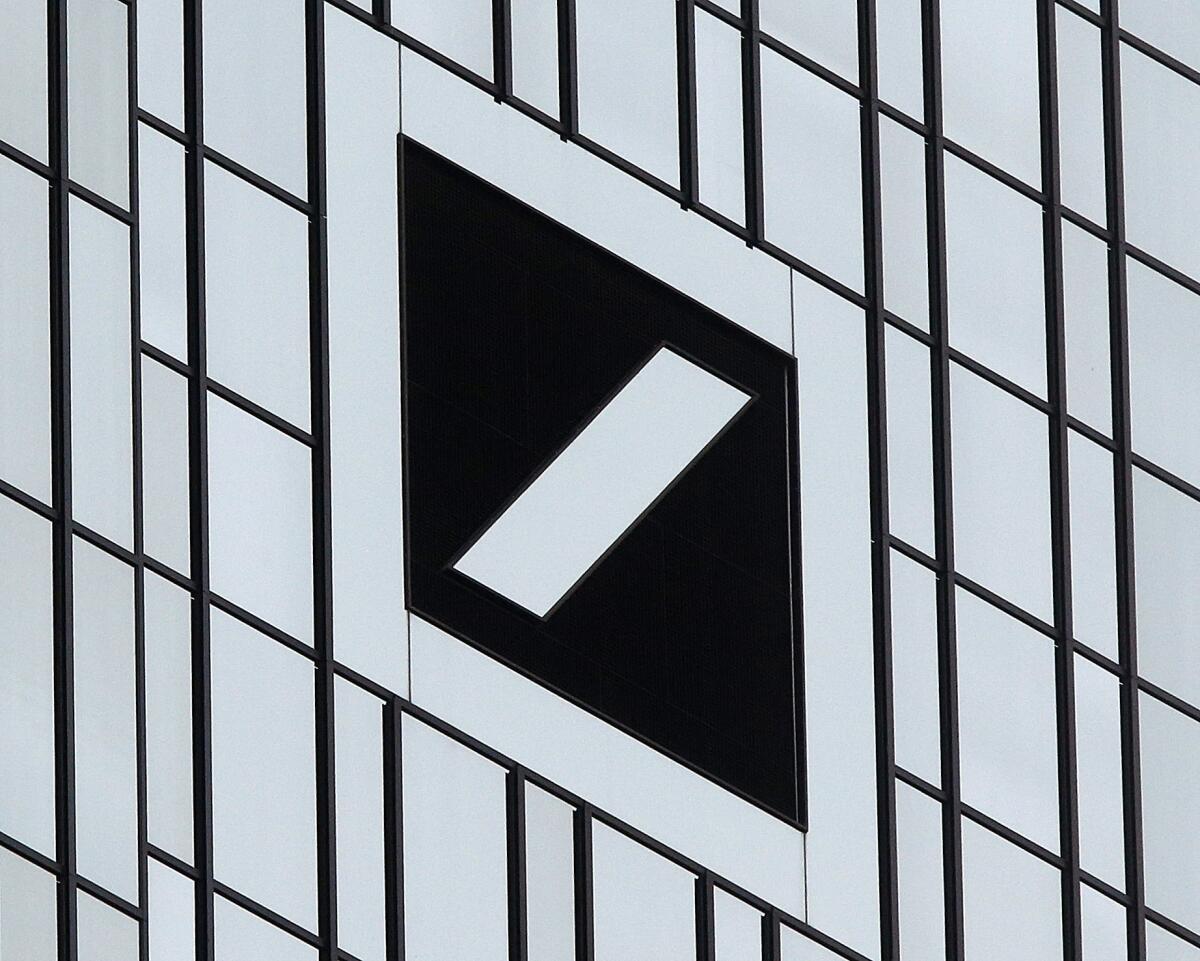For Trump, U.S. settlement of bank fraud claims removes one potential conflict of interest

- Share via
Reporting from Washington — The Obama administration’s agreement to settle long-standing cases against two major banks stemming from the financial crisis eased at least one potential conflict of interest facing President-elect Donald Trump, resolving a huge government claim against Deutsche Bank, which for years has been a major lender to Trump’s businesses.
The two settlements announced Friday will involve multibillion-dollar payments from Deutsche Bank and Credit Suisse for the sale of what authorities said were toxic mortgage-backed securities just before the housing bust and Great Recession.
Swiss-based Credit Suisse said that it would pay a penalty of $2.48 billion and an additional $2.8 billion in consumer relief.
Deutsche Bank said it would pay a total of $7.2 billion, which is only about half of what the Justice Department had initially sought from Germany’s largest lender. The bank would pay a civil penalty of $3.1 billion and provide $4.1 billion in consumer relief, which it said would mainly be in the form of loan modifications and other aid to homeowners and borrowers to be made over five years.
The deals are subject to the completion of final documents laying out the details of the settlements.
Obama administration officials may have pushed to resolve the matter because of the uncertainty of what would happen if it was left for the incoming Trump administration to conclude.
Government watchdog groups and ethics lawyers have warned that Trump’s long-standing ties to Deutsche Bank are a prime example of potential conflicts stemming from his refusal to divest his real estate holdings and other business interests.
Deutsche Bank still faces other inquiries that could prove difficult for the new administration, including allegations that it helped launder money for wealthy Russian clients.
Fear of a Trump-triggered recession gives way to hope for short-term economic boost »
The Justice Department said Thursday that it was also suing another major lender, Barclays Bank, and two of its former company officials, accusing them of having engaged in a fraudulent scheme to sell billions of dollars in securities “supported by defective and misrepresented mortgage loans” from 2005 to 2007.
Those were years when housing prices soared amid low interest rates and rapid sales to sub-prime buyers whose loans were packaged by banks as securities and sold to investors. Justice Department officials and many others believe that aggressive and misleading sales tactics contributed to the housing bubble and subsequent crash that precipitated the worst economic downturn since the Great Depression.
“Barclays jeopardized billions of dollars of wealth through practices that were plainly irresponsible and dishonest,” Atty. Gen. Loretta E. Lynch said in a statement.
One of her top deputies, Bill Baer, added: “The widespread fraud that investment banks like Barclays committed in the packaging and sale of residential mortgage-backed securities injured tens of thousands of investors and significantly contributed to the financial crisis of 2008. Millions of homeowners were left with homes they could not afford, leaving entire neighborhoods devastated.”
Barclays, which has its headquarters in Britain, rejected the claims and said it would seek dismissal of the case.
How Trump could use the presidency to help his business interests »
Follow me at @dleelatimes
ALSO
Reality check: Manufacturers returning to U.S. may mean jobs for robots, not people
Why this is the perfect time to invest in infrastructure, and why it probably won’t happen
Millennials aren’t big spenders or risk-takers, and that’s going to reshape the economy
More to Read
Inside the business of entertainment
The Wide Shot brings you news, analysis and insights on everything from streaming wars to production — and what it all means for the future.
You may occasionally receive promotional content from the Los Angeles Times.











